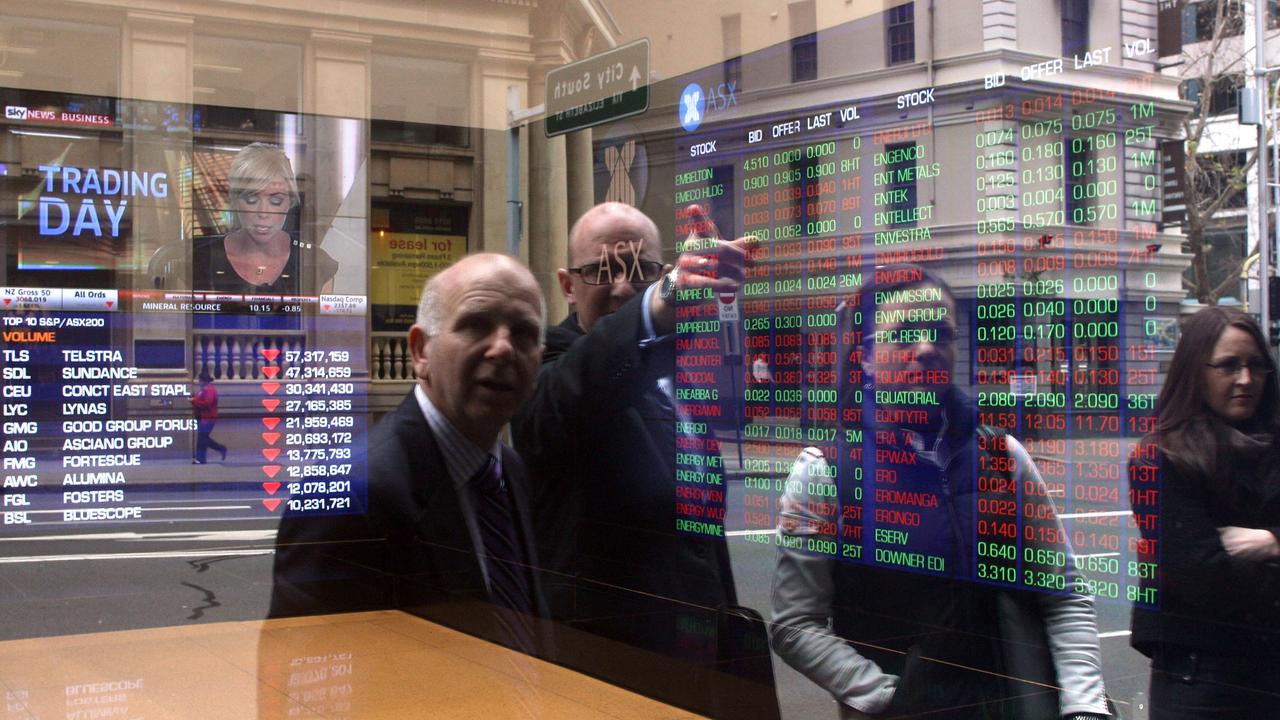Commodity forecasts might not be spot-on
If broker UBS is right, yesterday’s virile performance by our blue-chip miners should be only the beginning.

If broker UBS is right, yesterday’s virile performance by our blue-chip miners should be only the beginning, with BHP Billiton and pure-play iron ore king Fortescue Metals worth more than double their current value on current commodity prices.
That’s presuming these spot prices continue into perpetuity, which is a convenient assumption indeed.
The firm’s resources team regularly compare the implied earnings of the key resources stocks based on commodity spot prices and relative to consensus (and UBS) estimates.
In the case of BHP, consensus numbers point to 2016-17 net earnings of $US4.67 billion ($6.4bn).
But applying spot prices (especially for BHP’s key commodities of iron ore and oil) increases this profit to $US9.534bn.
The gap is even wider in 2017-18: spot prices would deliver a $US12.85bn profit, yet the market only factors in $US4.45bn.
Earnings for Rio Tinto (Rio, $58.67), which is relatively heavy in iron ore but not exposed to oil, increase 15 per cent to $US4.72bn for 2016 on the spot methodology.
Once again, though, the gap widens in 2017: ‘‘spot’’ earnings of $US7.041bn versus consensus expectations of $US4.12bn.
For the current year, Fortescue’s earnings would rise 117 per cent to $US2.76bn.
The commodities tide does not lift all boats. Take nickel producer Western Areas (WSA, $3.24), which would be a $21m loss maker at prevailing nickel prices, compared with market expectations of a $9m profit.
Overall, though, it looks increasingly likely last January’s commodities swoon marked the low point in the cycle. Sadly, no one rang the bell at the time.
As if on cue, Goldman Sachs yesterday upgraded its macro view on commodities to “overweight” in 2017, citing swelling inflationary pressures in the US and China which are not necessarily Trump-related.
Karoon Gas (KAR) $2.02
The dangers of doing business in foreign regimes have been highlighted by the gas explorer’s setback in Brazil, where its proposed purchase of two plum oil assets hit a legal snag from unexpected quarters.
With the national interest at heart, the country’s oil tanker workers’ union successfully filed for an injunction to prevent Karoon’s purchase of 100 per cent of the Bauna field (which produced 45,000 barrels per day) and 50 per cent of the Tartaruga Verde development project.
Karoon shares had been on the tear since October 7, when Karoon revealed it was proceeding to a deal with the 29 per cent government-owned Petrobras.
Karoon had been working on this “transformational opportunity” as part of a push to acquire assets at a time of low oil prices.
“The … union appears to be alleging that the Petrobras process was not sufficiently open and transparent enough, such that the interests of Brazil are potentially negatively affected,” broker RBC Capital Markets says.
Deutsche Bank describes the interim injunction, which is subject to appeal, as a common event that is likely to delay rather than stymie the sale.
If the deal falls apart, at least investors can be comforted that Karoon is trading at little more than its $450 million cash backing. Spec buy.
Clarius Group (CND) 9.6c
The remaining listed recruiters have struggled to regain their mojo after the GFC, despite low unemployment and more settled conditions following the mining slump.
Clarius yesterday warned investors of “easing” momentum on the eastern seaboard, with part-time jobs driving employment growth. Competition in the fragmented industry remains “more intense than ever”.
Clarius narrowed a previous $11.3m loss to $3.9m in 2015-16, on revenue of $185m.
Formerly known as Candle, the recruitment agency is again changing its spots under the new shingle of Ignite Services. But on recent form it will take more than a new name to change the spots on this limping leopard. Avoid.
Today we’ll hear more about job conditions at the coal face from Programmed Group (PRG), which last year merged with the biggest blue-collar recruiter Skilled Group.
Impression Healthcare (IHL) 8.7c
Back-door listings are still grinding through the system, albeit at a slower pace as the corporate regulator stamps ‘‘return to sender’’ on more of the prospectuses.
Formerly Mount Magnet Mining, Impression yesterday hit the boards as the owner of bespoke mouthguard maker Gameday.
Rather than going to a dentist, users order a kit online and then send an impression of their teeth to be made into a finished object.
The company cites a potential market of 880,000 users.
Impression has a manufacturing capacity of 50,000 units annually, having sold 990 in the last four months of 2015-16.
Our quibble is the company lacks the scale to take a meaningful bite out of a fragmented market, which is well served by mobile providers contracted by amateur clubs. Sell.
The Australian accepts no responsibility for stock recommendations. Readers should contact a licensed financial adviser. The author owns BHP Billiton shares.





BHP Billiton (BHP) $25.24, Fortescue Metals (FMG) $6.12, and others